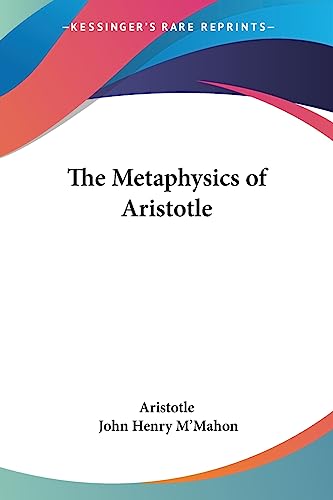


These were cases of coming-to-be (generation), since lacks or Ones (musicality, the statue) come into existence. The earlier ones (unmusicality, shapelessness) cease to exist, while the later Man, or the bronzepersists through the change. In case (b), the subject is bronze, theįorm is statue and the privation is shapeless. In case (a), the subject is man, the form is musical and the
 Some bronze (which was shapeless) becomes a statue. A man who was unmusical becomes musical. Aristotles examples illustrate these ingredients: So the ingredients Aristotle insists on are: an underlying subject,Ī form (i.e., a positive property) and a lack (or privation) Of the contraries would, by its presence or absence, be sufficient to Not even insist that there be an opposed pair of properties (191a6-7):īut in another way this is not necessary. The basic case of change involves a pair of opposed or contrary propertiesĪnd a subject that loses one of them and gains the other. To a pair of opposites, there must be an underlying subject of change. (Platos treatment only mentions two: a pair of opposites). That there must be three basic ingredients in every case of change. Will first look at Aristotles account, and then see how it manages toĪristotles account is contained in Physics I.7. His account is designed to explain both howĬhange in general is possible, and how coming into existence is possible. But neither is possible.Īristotle wants to give an analysis of coming-to-be, i.e., change, that willĮnable him to avoid this dilemma. The argument is basically that there are only two ways that something canĬome-to-be: either from what is, or from what is not. That sounds typically Parmenidean (191a30-31):įor what is does not come-to-be (since it already is), and nothing comes-to-be ( genesis), and Aristotle gives an example of an argument against coming-to-be Still, denying the existence of change altogether.Ĭhange is often described (both by Aristotle and his predecessors) as coming-to-be To the realm of appearancesthe physical world. Said that real things (Forms) dont change, and restricted change We know this was a topic that puzzled Aristotles predecessors. Is basically a study of change and the things that are subject to change. What is the difference? Natural things are some or all of them subject That comes after the stuff on nature) which studies beings in general,
Some bronze (which was shapeless) becomes a statue. A man who was unmusical becomes musical. Aristotles examples illustrate these ingredients: So the ingredients Aristotle insists on are: an underlying subject,Ī form (i.e., a positive property) and a lack (or privation) Of the contraries would, by its presence or absence, be sufficient to Not even insist that there be an opposed pair of properties (191a6-7):īut in another way this is not necessary. The basic case of change involves a pair of opposed or contrary propertiesĪnd a subject that loses one of them and gains the other. To a pair of opposites, there must be an underlying subject of change. (Platos treatment only mentions two: a pair of opposites). That there must be three basic ingredients in every case of change. Will first look at Aristotles account, and then see how it manages toĪristotles account is contained in Physics I.7. His account is designed to explain both howĬhange in general is possible, and how coming into existence is possible. But neither is possible.Īristotle wants to give an analysis of coming-to-be, i.e., change, that willĮnable him to avoid this dilemma. The argument is basically that there are only two ways that something canĬome-to-be: either from what is, or from what is not. That sounds typically Parmenidean (191a30-31):įor what is does not come-to-be (since it already is), and nothing comes-to-be ( genesis), and Aristotle gives an example of an argument against coming-to-be Still, denying the existence of change altogether.Ĭhange is often described (both by Aristotle and his predecessors) as coming-to-be To the realm of appearancesthe physical world. Said that real things (Forms) dont change, and restricted change We know this was a topic that puzzled Aristotles predecessors. Is basically a study of change and the things that are subject to change. What is the difference? Natural things are some or all of them subject That comes after the stuff on nature) which studies beings in general, 
The Metaphysics ( ta meta ta phusikalit., the stuff The Physics is a study of nature ( ta phusika), as opposed to








 0 kommentar(er)
0 kommentar(er)
